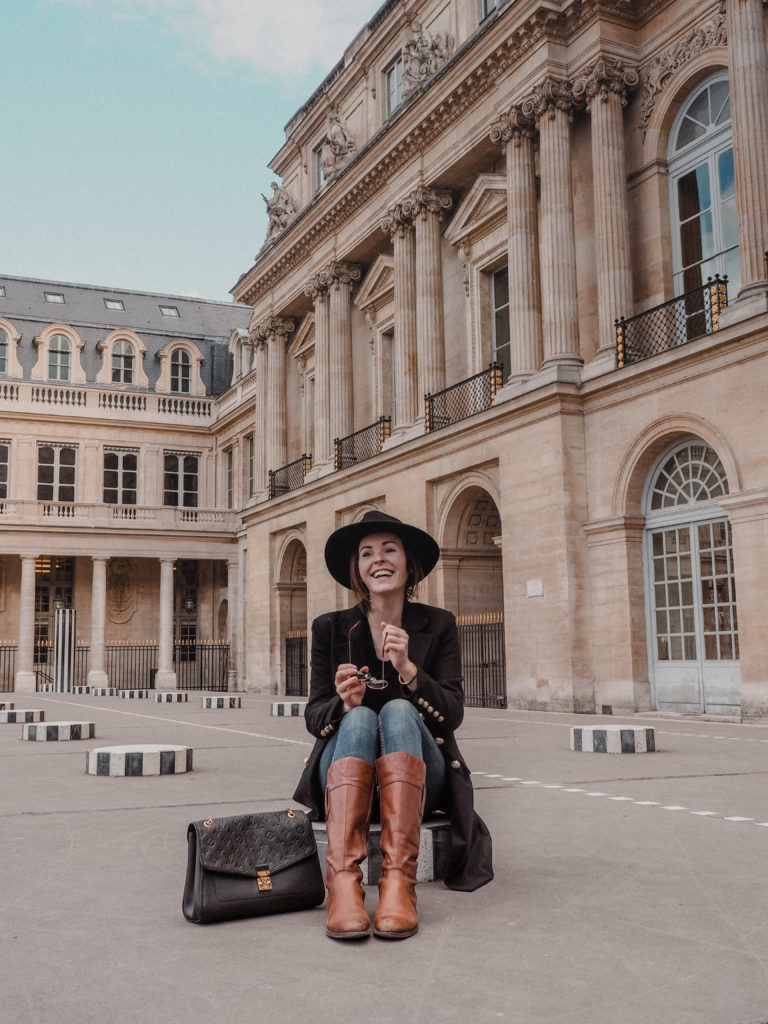This week I will be entering mandatory hotel quarantine in Australia. I’ll be spending two weeks completely alone, in the confines of a small hotel room in Sydney. With so much time on my hands, I started thinking about what I could do to make the most of my time. I figured what better time to start learning a new language!
At the start of the pandemic I wrote down “learn a new language” on my list of things to do. But of course one thing led to another and somehow we are already in October! But with so much time available to me, I’ve decided now is a great time to learn a new language. And can you guys imagine me learning any language other than French!?
For as long as I can remember I have been obsessed with French culture. The food, the wine, the countryside towns and my greatest love of all, Paris. But my French has always been limited to general conversations. A quick bonjour, a convenient “parlez vous anglais?” So now that I have more time than I know what to do with, I’m making it my end of year challenge to myself to learn French with Rosetta Stone.
These are the best tips to help you on your quest in learning a new language.

Wearing: Black and gold coat // Wesley Fedora Hat // Louis Vuitton Bag
The best tips for learning a new language
1. Learn with Rosetta Stone
It is no secret that Rosetta Stone is the leading platform to learn a new language. I also won’t make it a secret that this post is sponsored by Rosetta Stone, who offered me the chance to use their product and report back to my readers about how my language learning endeavours unfold. But the truth is I have always wanted to learn a new language with this platform. I have just never made the time for it. However now with more than enough time on my hands in quarantine, I’ve got very few excuses left.
I find the platform to be highly engaging because you type answers, speak back through your computer microphone and use visual cues to remember words. This is an all-inclusive approach to learning that makes it so much easier to remember what you have learned.
2. Practice every day
I have been putting aside half an hour every day to learn French. I find that if I practice every day, my memory retention improves. This is a scientifically proven learning method that works a lot better than practising in chunks. If you set aside some time each day, you will find yourself building on your prior knowledge each time. My current schedule is to practice half an hour every weekday and if I feel like it on weekends, I add in some extra time.
3. Conversation with others
It can sometimes be tricky to converse with other people when you are learning a new language, but this is the easiest way to learn! Every year when I visit Paris I try to speak as many sentences in French as possible before resorting to a cheeky grin that screams “English speaker!” Not only do the locals appreciate you making an effort, they will also make polite corrections. This is a great way to learn on the go. If you can’t travel right now, consider challenging your friend to learn with you at the same time. That way you can test each other and keep each other motivated. It’s kind of like having a gym buddy!
4. Start with the 100 most common words
I can’t speak fluently in any other language (yet) but I can tell you some very random words in a handful of languages. I find learning common words is the best way to travel to non-English speaking countries, so you can at the very least get by. Greeting phrases are a great way to start, but then challenge yourself to learn words that will be useful to you like “vegetarian” or “toilet”. You’d be surprised how many of these come in handy! Then, in conversation with locals, you will easily pick up the transition words to fill a sentence.
5. Use the Rosetta Stone App
If you’re anything like me, you will find yourself with free time to learn a new language at unusual times of the day. Say if you’re stuck in a line, waiting for a friend at a restaurant or out for a walk… that is time you could spend learning! However you often don’t have your laptop handy. Therefore I would recommend downloading the app to be able to learn any time of day, wherever you are. I’ve become quite fond of learning on the treadmill, walking at a slow pace in the gym.

6. Practice all the time in everyday life
Another great way I have found myself learning languages over the years is to practice out loud in everyday life. Whether I’m replacing a “thank you” with a “merci” or greeting my friends with a “bonjour”, practising small words is my way of reminding myself to keep learning. I have found this really useful when learning patisserie, as many of the words are in fact French.
7. Don’t just focus on the words but the accent, too
You can fool a Frenchman into thinking you are local with a thick Parisian accent, but you won’t fool anyone if you retain your English accent. I always learn the most by listening and have found the Rosetta Stone courses great for pronunciation as you hear French people speaking to you in real time.
8. Increase your study time
Now that I am getting more serious about learning French (and want to speak it fluently) I have started to incorporate a few intense learning sessions with my quick every day lessons. This is a great way to progress as you will notice you flex the muscles more, kind of like when you go to the gym and do that last difficult set. Try to think of learning a language in the same light. The more you push hard at the end, the sooner you see results.
9. Look up individual words as you think of them
The more you start to learn a language, the more you will seek the odd and unusual. I like to look up individual words as I think of them, so I can look at an object in the house and say “assiette” (plate) and so on. Google translator is a quick way to look up individual words in your own time and further your own learning. Also you can listen to the audio to perfect your accent!
10. Try one-on-one tutoring
Later this month I will be starting one-on-one tutoring through the Rosetta Stone platform. I was a little too nervous (and quite frankly ill-equipped) to start straight away, so I set myself a goal of one month learning before committing to a one-on-one session. This is however the most efficient way to use your term when learning a new language. You’ll receive real-time feedback and corrections, plus you can ask as many questions as you like.
A very warm thank you to Rosetta Stone for allowing me to realise my French speaking dreams! I look forward to checking back in with you all shortly with an update on my progress. While my course was gifted, all opinions are entirely my own.

